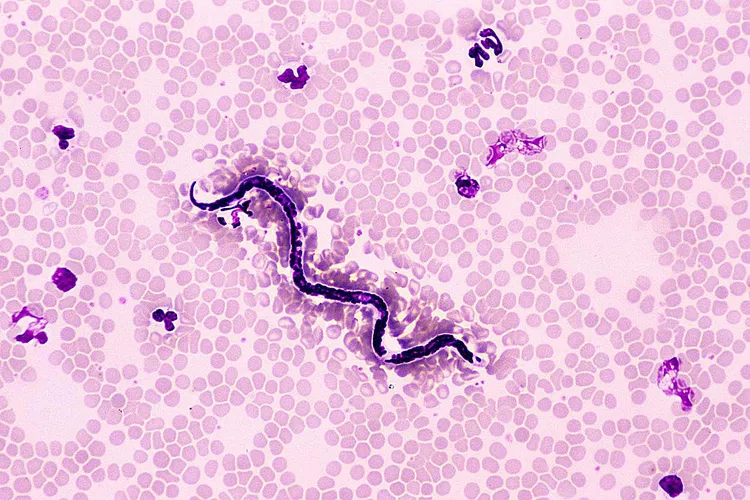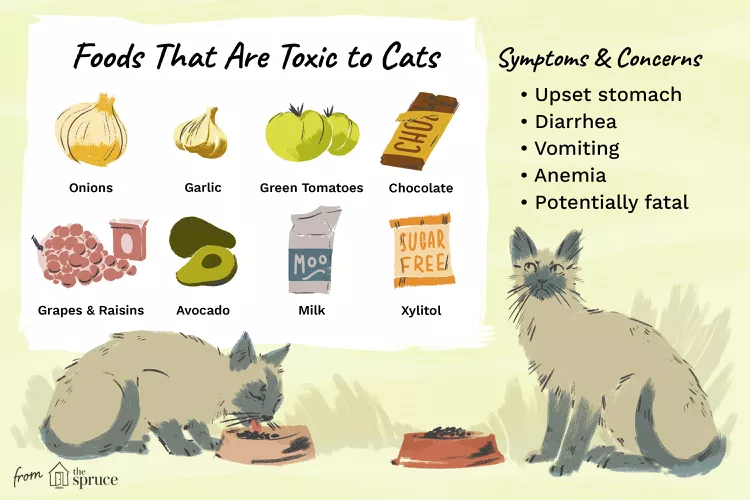
Heartworm disease is a life-threatening parasitic infection that affects the hearts and lungs of dogs. Because heartworms are spread solely by the mosquito, any dog exposed to mosquitos is at risk. Heartworm disease is a relatively common disease in dogs everywhere in the United States. Because of this, the American Heartworm Society recommends year-round treatment with a Heartworm preventative for all dogs in the U.S. regardless of climate.
It’s important to note that dogs living in areas that are warmer and more humid are at the highest risk since they tend to have more exposure to mosquitoes. Investing in a dog mosquito repellent can help prevent mosquito bites.
Heartworm disease is caused by a parasite called Dirofilaria immitis. The larvae of these parasites enter the dog when a mosquito bites them and they travel through the blood vessels to the heart and lungs, were they mature and can cause serious health problems including death.
Though termed "prevention," heartworm preventatives are actually parasitacides that kill the microscopic heartworm larvae present in the bloodstream. These medications are given on a monthly basis to kill and remove heartworm larvae before they can develop into adults. Because these medications are designed to kill the immature larvae, it is essential to administer them on a regular basis. If you are late on a dose by a a month or less, it is recommended to give the missed dose immediately and continue to give the medication every 30 days. If you have missed more than one dose of medication, it is important to speak with your vet before restarting since a long gap in treatment could allow the heartworms to mature and it may no longer be safe to kill them off in the same manner without veterinary supervision.
All dogs should have a heartworm test done by a veterinarian once per year. If you miss more than one dose of heartworm prevention, contact your vet. Your dog may need to be tested for heartworm again before restarting the medication. It is important not to give heartworm prevention to a heartworm positive dog unless specifically instructed to do so by a veterinarian. In some situations, giving heartworm prevention to a dog that is already heartworm positive may be harmful. Your veterinarian may recommend careful supervision and additional medications and precautions for treatment in those cases. If you suspect your dog is heartworm positive or had a long gap in their preventative, talk to your vet about the next steps recommended.
Giving your dog heartworm prevention is an essential part of being a responsible dog owner. In addition, it is safer and less expensive to prevent heartworms compared to putting your dog through heartworm treatment. heartworm treatment can be costly and can be risky to the dog. heartworm prevention costs vary per year depending on the size of the dog and the type of medication used.
Talk to your veterinarian about the ideal heartworm prevention for your dog. There are several different medications that can be used on a regular basis to prevent heartworm infestation.
Some Brand Names: Heartgard Plus (by Boehringer Ingelheim); Iverhart Plus and Iverhart Max (by Virbac); Tri-Heart Plus (by Merck)
Ivermectin-based Heartworm medications are given orally once per month. Ivermectin is a broad-spectrum antiparasitic drug used in humans and animals. In monthly Heartworm prevention, the dose of ivermectin is low but effective at killing Heartworm larvae. In the above brands of Heartworm prevention, the "plus" refers to the addition of pyrantel pamoate, which kills common parasites like hookworms and roundworms. The "max" indicates the addition of praziquantel as well, which kills tapeworms.
Side effects of ivermectin are rare. If side effects occur, they are usually neurologic in nature (central nervous system depression, wobbly gait). Some dog breeds, such as the Collie and Shetland Sheepdog, are known to be sensitive to ivermectin due to the ABCB1/MDR1 gene mutation. However, at such a low dose, ivermectin-based heartworm prevention medications rarely cause side effects or reactions, even in sensitive breeds.
Some Brand Names: Trifexis (by Elanco); Sentinel (by Merck)
Milbemycin-based Heartworm medications are also given orally once per month. Like ivermectin, milbemycin oxime is a broad-spectrum antiparasitic drug. It is used only in animals, not in humans. Milbemycin also kills roundworms, hookworms, and whipworms. Both Trifexis and Sentinel include an additional drug to prevent flea infestation. The flea prevention in Trifexis, spinosad, kills fleas. The one in Sentinel, lufenuron, prevents flea eggs from hatching but does not actually kill adult fleas.
There are generally few side effects of milbemycin if given as directed though side effects with any medication are possible. Symptoms of milbemycin overdose tend to be neurological in nature (stupor, tremors, wobbly gait). There is no specific breed sensitivity noted at this time.
One Brand Name: Revolution (by Pfizer)
Selamectin is applied topically once per month. It is an antiparasitic drug used in animals only that kills fleas, prevents Heartworm infections and treats and controls hookworms, roundworms, and ear mites. The product comes in a small tube that is applied to the skin (not the hair) on the back, between the shoulder blades. Proper application is essential to ensure effectiveness.
Though rare, the side effects of selamectin may include loss of appetite, excessive drooling, vomiting, diarrhea, muscle tremors, fever, rapid breathing, or seizures. At the site of application, there may temporarily be stiff or clumped hair, hair discoloration, hair loss, skin irritation, an oily spot or a powdery residue.
Some brand Names: Advantage Multi (by Bayer); Proheart (by Zoetis)
Moxidectin is an antiparasitic drug used in animals only that prevents Heartworm infections and helps control hookworms, roundworms, and whipworms as well as some skin mites that cause mange. Moxidectin is administered one of two ways: Advantage Multi is applied topically; Proheart 6 and Proheart 12 are injectable drugs.
Advantage Multi comes in a small tube that is applied once a month to the skin (not the hair) on the back between the shoulder blades. It must be applied correctly to work properly. In addition to moxidectin, Advantage Multi contains imidacloprid, which kills fleas. Though rare, the side effects of Advantage Multi may include lethargy, itching, and hyperactivity. At the site of application, there may temporarily be stiff or clumped hair, hair discoloration, hair loss, skin irritation, or a powdery residue.
Proheart is given as a subcutaneous (under the skin) injection once every six to 12 months depending on the variety used. The moxidectin is in a sustained release formula that allows it to last for the labeled duration. This form of Heartworm prevention is ideal for many owners because it eliminates the need to remember monthly treatments. Potential side effects, though uncommon, include mild to severe allergic reactions, lethargy, seizures, vomiting, diarrhea, weight loss, and fever.

The First 30 Days With Your New Kitten
The first month is full of changes and excitement for a kitten in a new home. Find out what to expect and what you can do for your new feline friend.
How Old Is Your Cat in Human Years?
As a cat ages, there are often behavioral and physical changes too. Find out how to convert cat years to human years and what to expect at each stage.
What to Buy for Your New Cat: A List of Essentials
Before you bring your new cat or kitten home, there are a number of things to collect or buy so your cat will feel welcomed like a family member.
Human Foods That Are Poisonous to Cats
Many human foods are toxic to cats. Avoid feeding cats table scraps. Instead, feed a nutritious cat food created for their specific nutritional needs.
Cat Food Ingredients to Avoid
When checking the nutrition content of cat food, look for ingredients that are not healthy or show it is of poor quality. Avoid these 3 ingredients.
Should You Feed Your Cat a Raw Diet?
Learn the pros and cons of raw diets for cats, and find out how to choose a raw food diet for your own cat.
Can Cats Eat Corn? Here's What A Vet Thinks
Corn is a common ingredient in cat food and can be a safe treat for cats when fed in moderation. Find out more about how to safely feed corn to your cat.
10 Obscure, Little-known Canine Facts in Honor of National Dog Day
With National Dog Day upon us, it's time to celebrate everything about our favorite pets—even the weirder stuff. Here are 10 obscure facts about dogs you probably didn't know.
The Different Types of Pet-Friendly Workplaces
Discover the different types of pet-friendly workplaces and the benefits they offer employees. Learn how to create a pet-friendly workplace and the best practices for pet owners.
Exploring the Different Types of Pet-Friendly Beaches
Are you looking for pet-friendly beaches? Learn about the different types of pet-friendly beaches, their locations, and tips for visiting them with your pet.
Why Is My Dog Lethargic?
Lethargy can be a sign that something is wrong with your dog. Find out what may be causing this lack of energy and what you should do about it.
Medications to Prevent Heartworm Disease for Dogs
Heartworm disease is a serious risk for all dogs exposed to mosquitos. Find out about the products used to prevent Heartworm disease in dogs.
Can My Dog Eat Tomatoes?
You'll want to keep Fido out of your garden since the tomato plant is toxic, but you can safely offer him ripe tomatoes as a nutrient-packed treat.
15 Best American Cat Breeds
Several cat breeds, including the American shorthair and Bengal, have their origins in the United States. Learn more about these American cat breeds.
Why Do Cats Slap Each Other?
Cats can have some quirky behaviors—one of them being slapping each other. Why do they do this and what can you do to stop it?
Skye Terrier: Dog Breed Characteristics & Care
Learn all about the Skye Terrier, an elegant breed known for its friendly and even-tempered personality with classic terrier traits.
Sloughi: Dog Breed Characteristics & Care
Learn all about the Sloughi, an ancient dog breed known for its impressive running ability, slim stature, and affection toward its family.
English Setter: Dog Breed Characteristics & Care
Learn about the English setter, an excellent hunting breed for pointing and retrieving game. It's also a popular and affectionate companion dog.
Why Dogs Bury Bones and Other Objects
If you give a dog a bone, he might bury it. Why is that? Learn about this burying behavior in dogs and what it means for your pet.
Reasons Why Dogs Run Away and How to Stop It
Dogs can escape, especially if they’re bored and not properly contained. Here are some techniques for stopping your dog from running away.